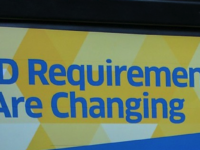When I first wrote about the arrival of Bill S-210 in the House of Commons back in December, I dubbed it the most dangerous Canadian bill you’ve never heard of and warned that “Senate private members bills rarely become law, but this bill is suddenly on the radar screen in a big way.” Nearly six months later, the bill is closer than ever to becoming law as the Conservatives improbably appear to be doubling down on support and seeking to limit witness testimony through filibuster tactics that could result in a full House vote without any amendments. For those new to the bill, the government has called it “fundamentally flawed” since it contemplates measures that raise privacy concerns through mandated age verification technologies, website blocking, and extends far beyond pornography sites to include search and social media. While the government has opposed it (save for a small number of Liberal MPs), the bill received full backing from Conservative, NDP, and Bloc MPs to send to the Standing Committee on Public Safety for further review. Now that it is there, the Conservative MPs have used filibuster tactics to block all witness testimony on the bill.
Post Tagged with: "age verification"
Conservatives Double Down on Support for Mandated Internet Age Verification and Website Blocking: Why Can’t Canada Get Common Sense Digital Policy?
Digital policy has been the source of seemingly never-ending frustration for years in Canada. The government chose to prioritize two flawed bills on online streaming and online news, both of which sparked considerable opposition, lengthy delays, and ultimately delivered few actual benefits (Bill C-11 faces at least another year of hearings at the CRTC, Bill C-18 is a disaster that has left many media companies worse off). Its 2021 consultation on online harms was so badly received that it was quickly shelved and has required nearly three years to recover. The policies it should have prioritized such as stronger privacy and competition rules were largely left to languish with Bill C-27 still in committee and now subject to mounting opposition over the decision fold AI regulation with minimal consultation into the bill.
Given that track record, it is hard to be optimistic as the online harms rules get set to take centre stage.
Bill S-210 is Just the Beginning: How a Canadian Digital Lobby Group is Promoting a Standard to “Foster Widespread Adoption of Age Verification Technologies in Canada”
This week’s Law Bytes podcast features a revealing discussion with Senator Julie Miville-Dechêne, the chief architect and lead defender of Bill S-210 or the Protecting Young Persons from Exposure to Pornography Act. It may be the most dangerous Internet bill you’ve never heard of since it contemplates measures that raise privacy concerns, website blocking, and extend far beyond pornography sites to include search and social media. The bill started in the Senate and is now in the House of Commons, where last year Conservative, NDP, and Bloc MPs voted alongside a small number of Liberal MPs in favour of it at second reading and sent it to committee for further study. The government has called the bill “fundamentally flawed”, but there may be sufficient House support to turn it into binding legislation.
While Senator Miville-Dechêne emphasizes stopping underage access to sexually explicit material and her view that that goal merits site blocking and mandated age verification even for some uses of Google and Twitter, a new standards initiative suggests that some envision far more extensive use of mandated age verification systems. The Digital Governance Council is one of several Jim Balsillie-led organizations focused on influencing government digital and innovation policy. Its CEO is Keith Jansa, who Senator Miville-Dechêne identified in the Law Bytes podcast as her source for providing assurance of the privacy safeguards in the bill.
The Law Bytes Podcast, Episode 190: Debating Bill S-210 – Senator Julie Miville-Dechêne Defends Her Internet Age Verification Bill
I’ve described Bill S-210, the Protecting Young Persons from Exposure to Pornography Act, as the most dangerous Internet bill you’ve never heard of as it contemplates measures that raise privacy concerns, website blocking, and extend far beyond pornography sites to include search and social media. The bill started in the Senate and having passed there is now in the House of Commons, where MPs voted in favour of it at second reading and sent it to committee for further study. Senator Julie Mivelle-Dechêne is the chief architect and lead defender of the bill. A former Radio-Canada broadcaster who was appointed to the Senate by Justin Trudeau in 2018, she joins the Law Bytes podcast to debate her bill as she provides her rationale for it and defends against the criticism and concerns it has sparked.
From Bad to Worse: Senate Committee Adds Age Verification Requirement for Online Undertakings to Bill C-11
The Senate committee studying Bill C-11 has ramped up the hours devoted to clause-by-clause review with amendments related to user generated content currently up for debate. However, earlier today, just prior to addressing the user content issue, the committee shockingly adopted an amendment that adds age verification for online undertakings to the Broadcasting Act. The amendment comes as a policy objective, meaning that it will fall to the CRTC to determine how to implement it. The implications are enormous since broadly defined the policy would require every online service that transmits or retransmits programs over the Internet (broadly defined to include all audio and audiovisual content) to establish age verification requirements to prevent child access to programs with explicit sexual activity. If the CRTC implements, the policy will surely be challenged as unconstitutional.











